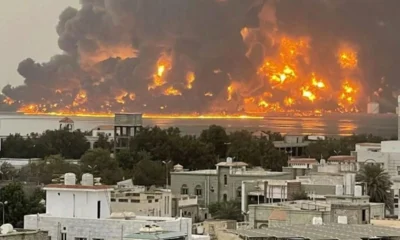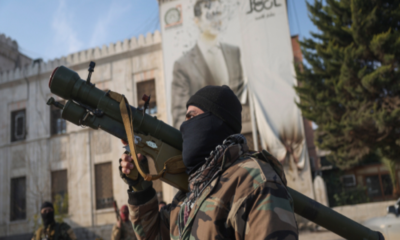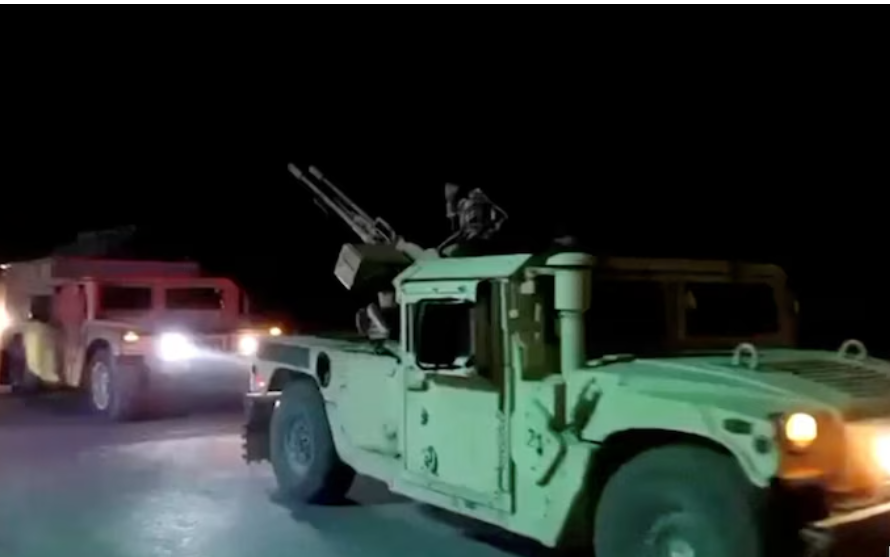The regional group appreciated airstrikes on Syria
The 29th Arab League summit called on Sunday for an international probe into the “criminal” use of chemical weapons in Syria and condemned what it saw as Iran’s interference in the affairs of other countries. However, Arab leaders did not discuss the Saturday’s missile attacks on Syria by US, Britain and France.
According to Reuters, the summit held at Saudi city of Dhahran, said in a statement “We stress our absolute condemnation of the use of chemical weapons against the Syrian people and we demand an independent international investigation to guarantee the application of international law against anyone proven to have used chemical weapons.” The leaders emphasized the need for a political solution to the multi-sided Syrian war.
Saudi Arabia and its allies have expressed support for Saturday’s missile strikes by the United States, Britain and France against alleged chemical weapons facilities in Syria, while Iraq and Lebanon condemned the strikes.
Damascus denies using or possessing chemical weapons and called the strikes an act of aggression.
According to a summit spokesman, the leaders were to discuss the Syrian conflict but not the strikes that targeted the sites near Damascus and in the Homs province.
Read More: Arab League call Trump’s Jerusalem move as dangerous
Reuters reports that military help over the past three years from Russia and Iran, which also backs Lebanon’s Hezbollah and Shi’ite Muslim militias in Iraq, has allowed Syrian President Bashar al-Assad to crush the rebel threat to topple him.
The Arab leaders called for more international sanctions against Iran and urged Tehran to withdraw “its militias” from Syria and Yemen. Saudi Arabia and its allies allege that Iran was supporting Yemen’s Houthi Ansarullah. Iranian military advisors were invited by Damascus for helping in fight against Daesh (IS) and other terror organisations.
While talking to media persons Saudi Foreign Minister Adel al-Jubeir said, “The summit condemned Iranian interference in the internal affairs of Arab countries, either through igniting sectarian strife or planting militias in Arab countries such as Lebanon, Iraq and Yemen, and harbouring al Qaeda terrorists.”
Responding to a question as to why Qatar was not on the summit’s agenda, the Saudi foreign minister said: “Because Qatar is not on the agenda. It’s not a big issue. It’s not a big problem. It’s a very, very small problem.”
He said the issue would be resolved if Doha met the boycotting countries’ demands, which include closing the Al Jazeera television station and reducing ties with Iran.
According to Iranian official media, Tehran has rejected the condemnation as the result of Saudi pressure. “The heavy shadow of destructive Saudi policies is evident in … the final statement of the summit,” Bharam Qasemi, the spokesman for Iran’s Foreign Ministry said on Sunday.
The Arab League summit was marred by the absence of any senior representative from Qatar. This has indicated that the gulf crisis which began in early June last year with sudden severing of diplomatic, air and land ties by Saudi Arabia, UAE, Bahrain and Egypt, was far from over.
Syria was also not present in the Arab League summit after the country was suspended from the groups in 2011.
Al-Jazeera’s political analyst Marwan Bishara has said that “It couldn’t get more odd. It’s what you call a bottomless summit”. It was “odd” that the recent strikes in Syria were not on the agenda.
Qatar’s delegation was headed by its permanent representative to the Arab League, Saif bin Muqaddam al-Buainain while Most of the 22 other countries sent heads of state or government. Qatar’s Emir Sheikh Tamim bin Hamad al-Thani attended last year’s Arab League summit in Jordan.
The four countries accused Qatar of supporting terrorism, an allegation denied by Doha. Qatar believes that the boycott is an attempt to impinge on its sovereignty.
However, Arab leaders tried to convince the Muslim population worldwide by balancing their act and “rejected” US President Donald Trump’s decision of recognising Jerusalem as the capital of Israel “null and illegitimate”. King Salman of Saudi Arab called the summit as “Jerusalem Summit”.
Reuters reported that the delegates of the summit pledged to support the Palestinians, who want East Jerusalem to be the capital of future Palestine state. King Salman said Saudi Arabia was donating $200 million to help them, including $50 million for UN Relief and Works Agency (UNRWA).
Read More: Saudi Crown Prince recognise Israelis right to their own land
Recently, Saudi Arabia’s Crown Prince Mohammed Bin Salman had virtually recognised Israel during an interview during his US trip. He was quoted saying, “I believe that each people, anywhere, has a right to live in their peaceful nation. I believe the Palestinians and the Israelis have the right to have their own land.”
Tunisia will host the next Arab League summit in 2019.

























